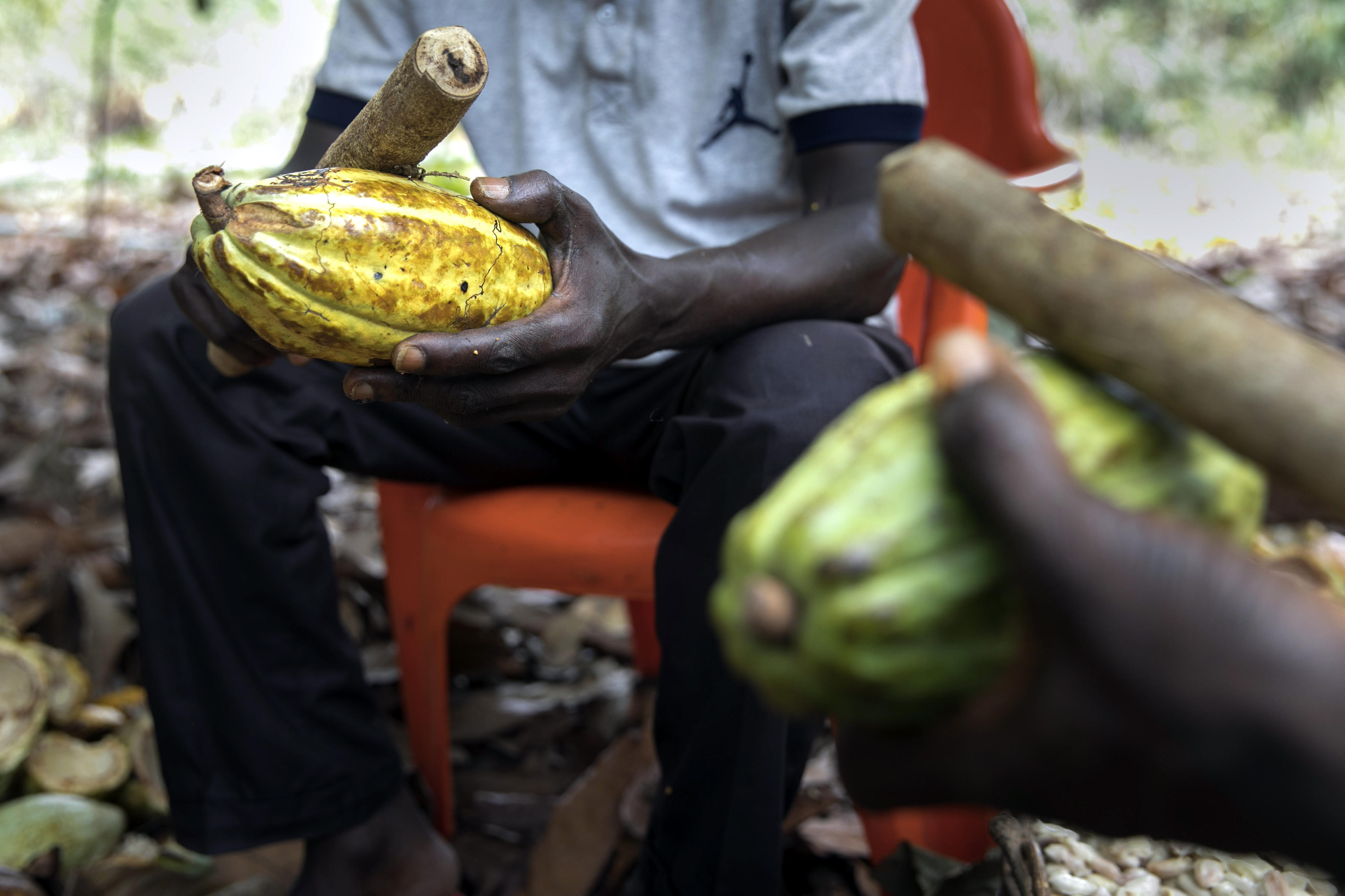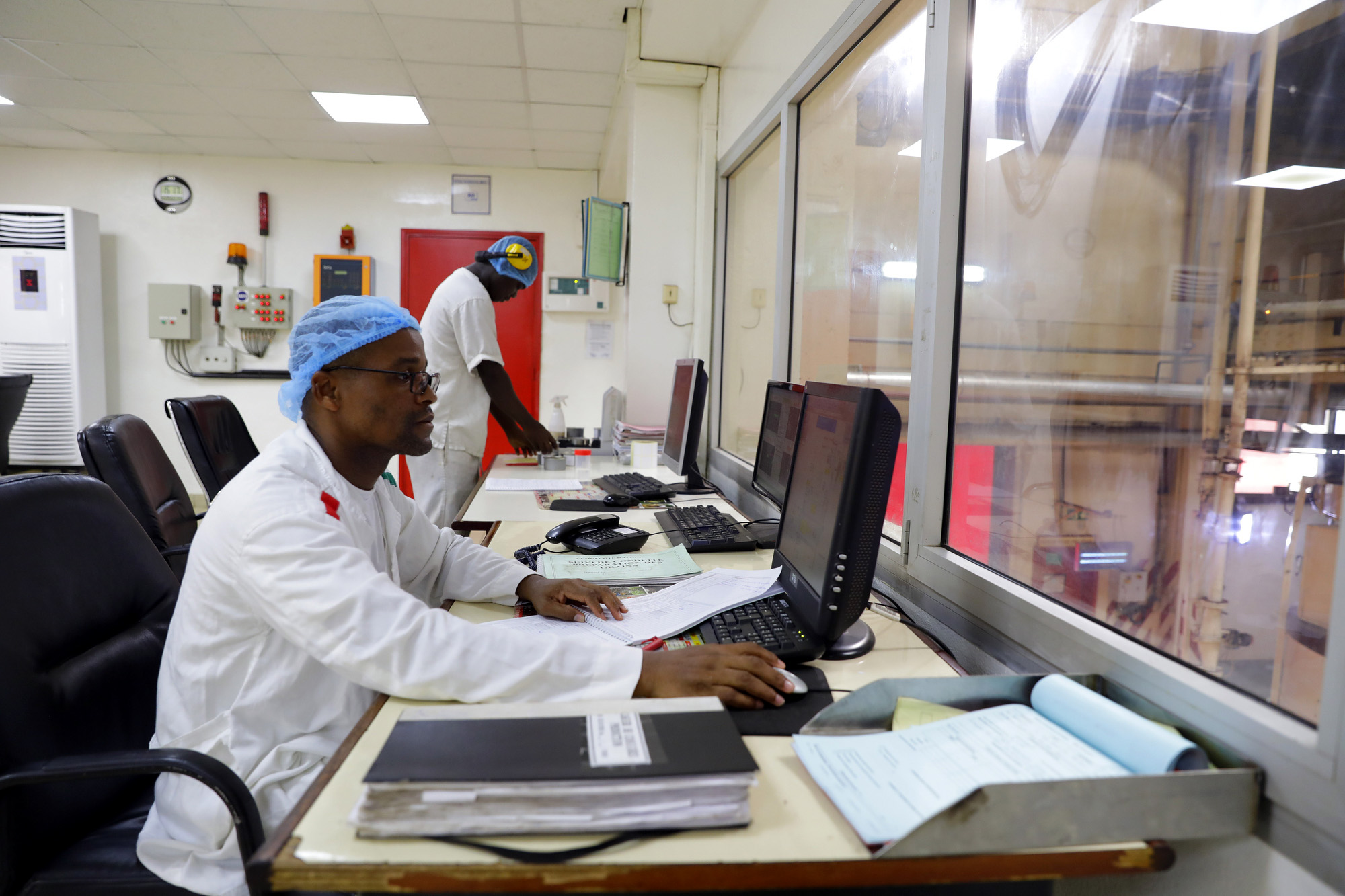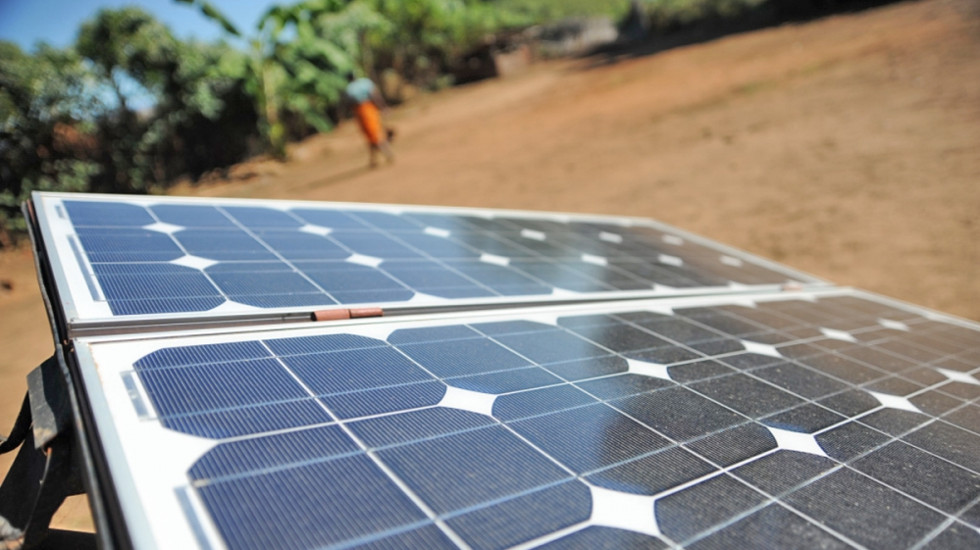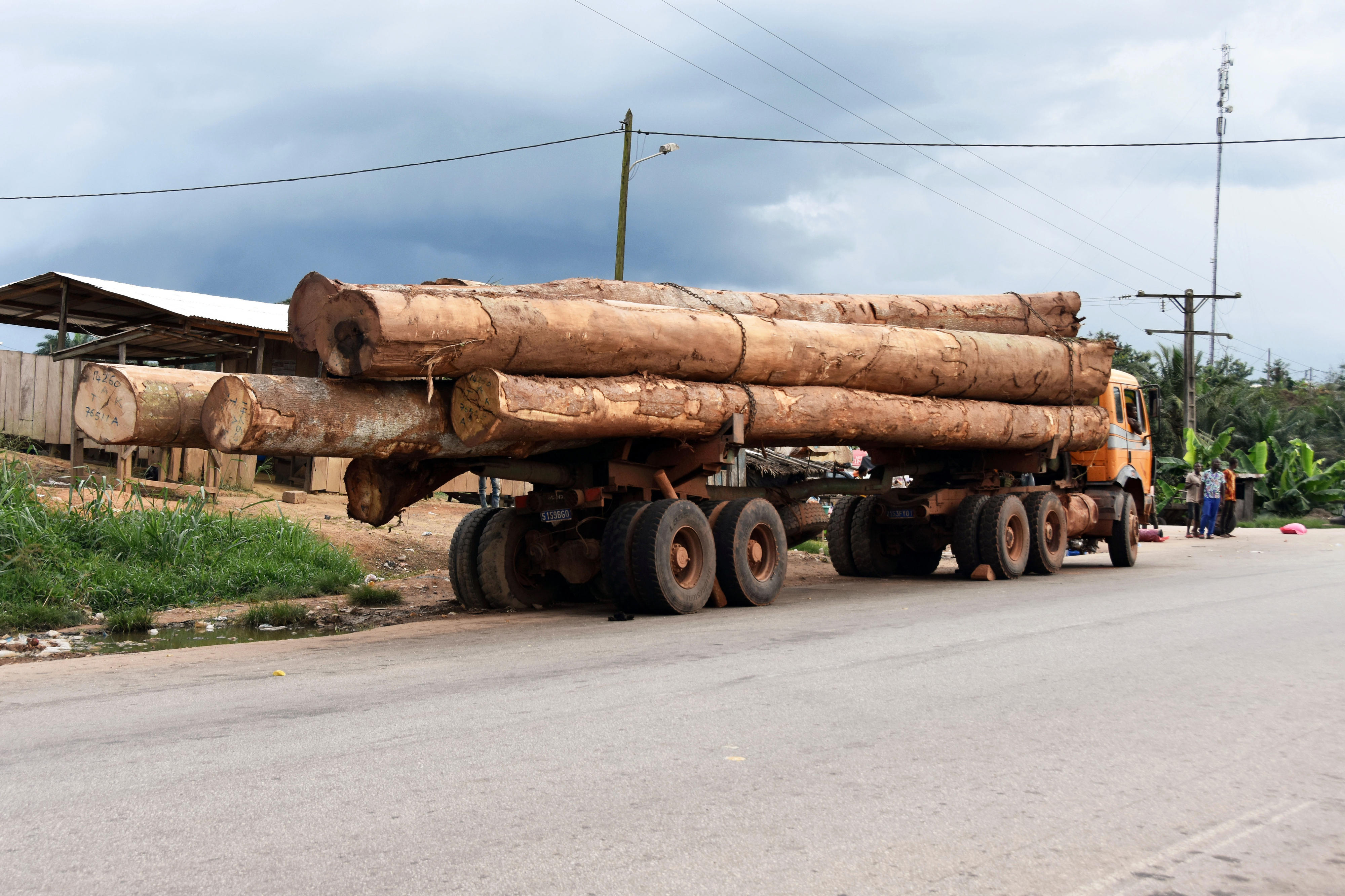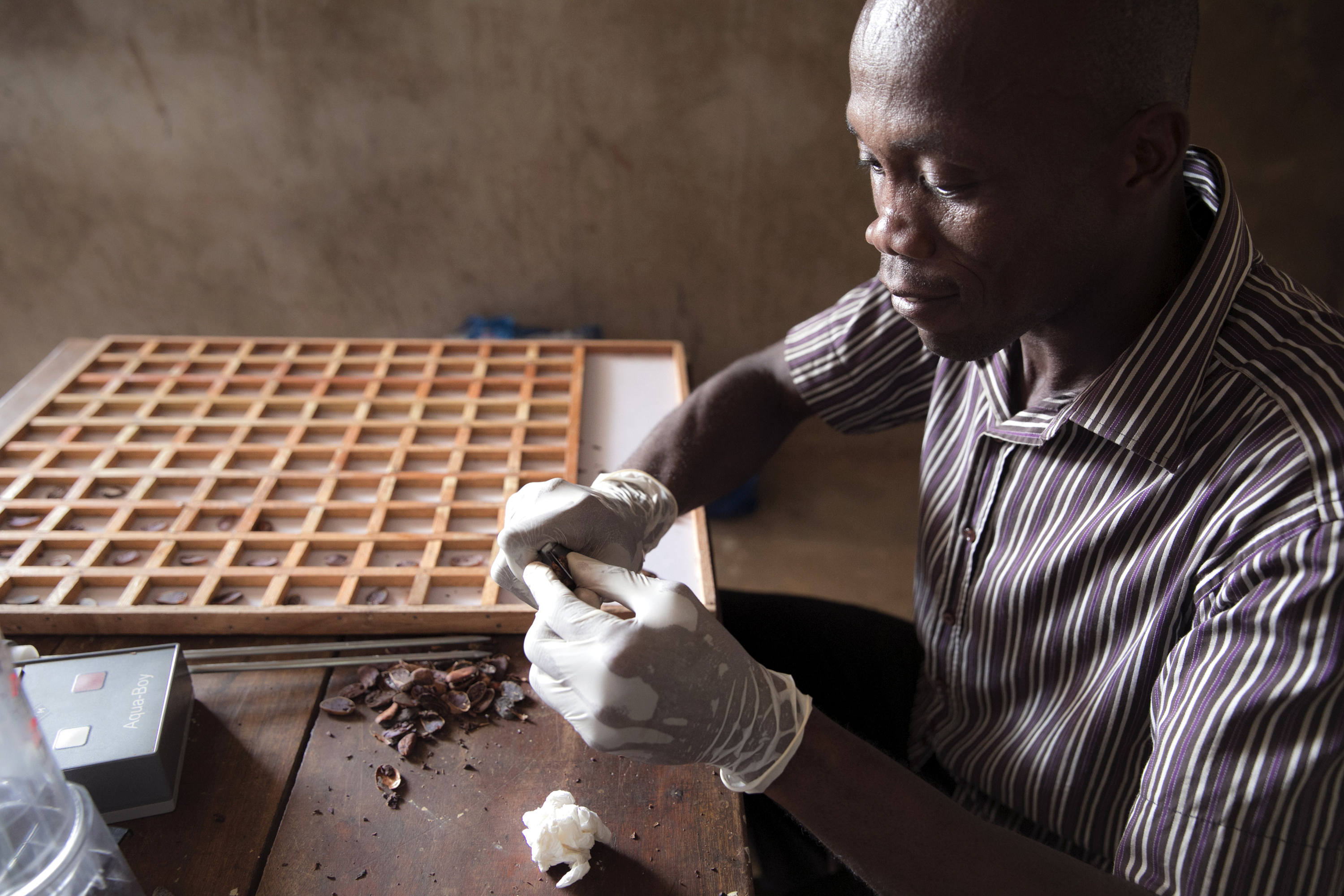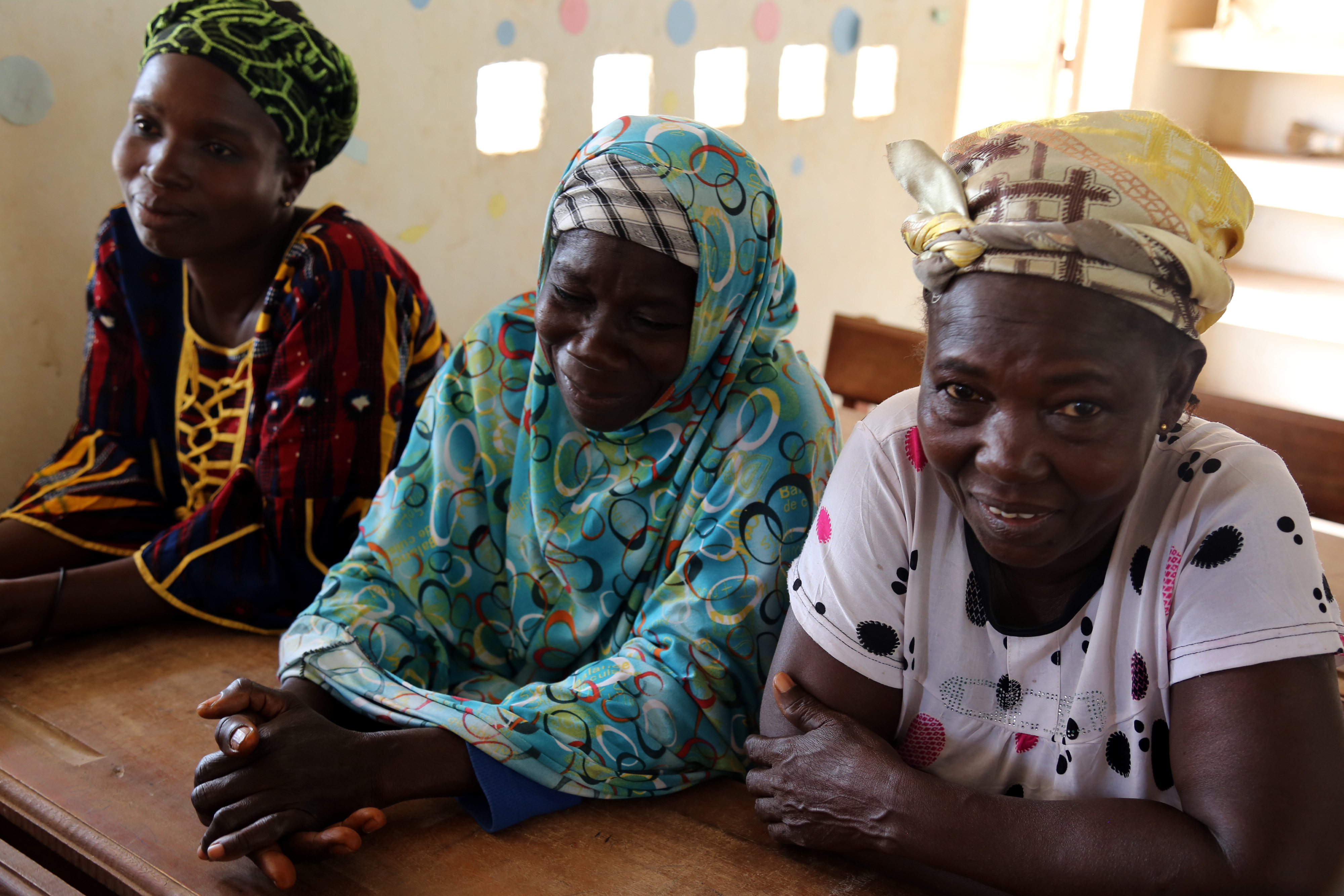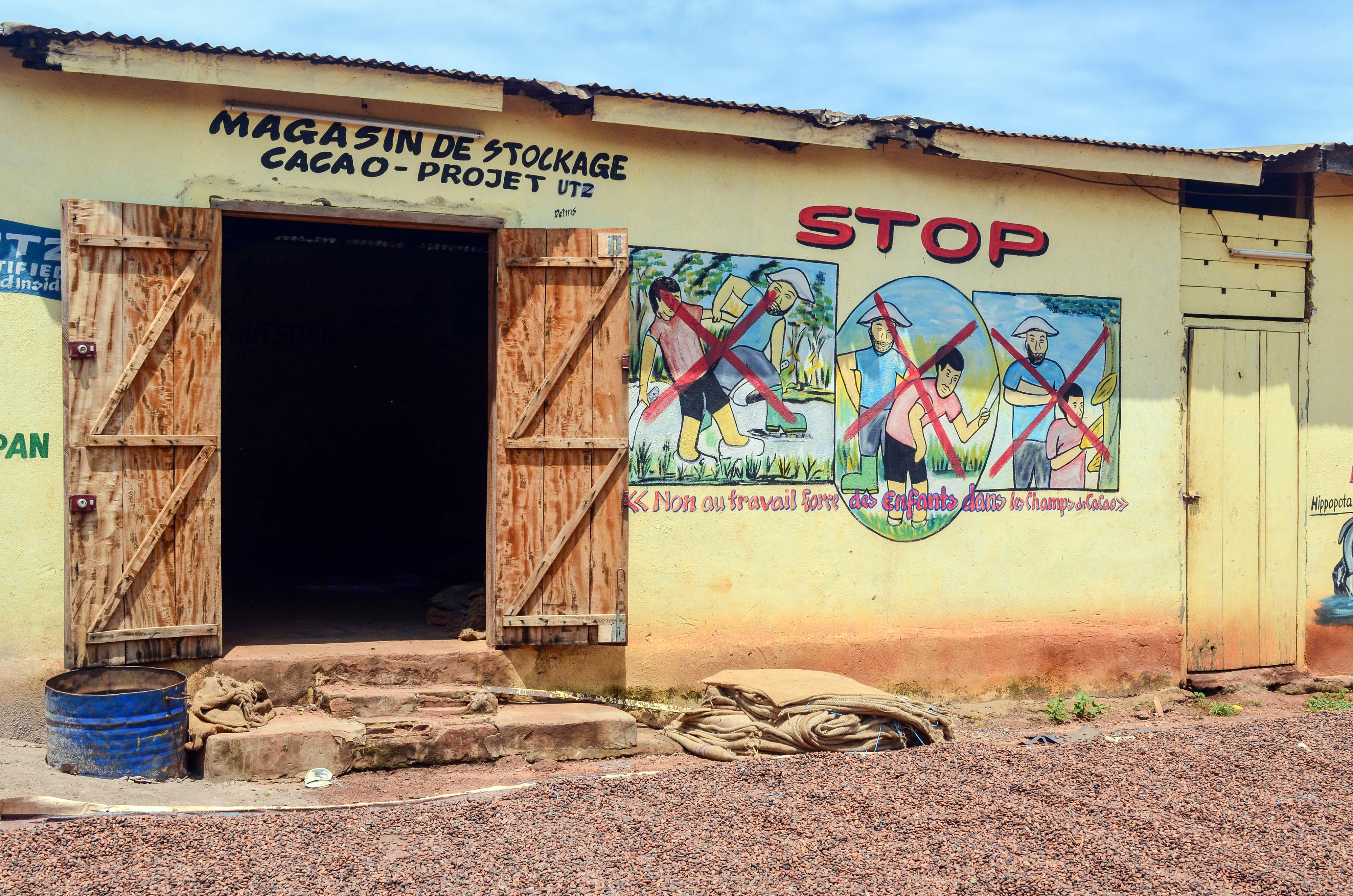Opening ripe cocoa fruits at the PRO-PLANTEURS cooperative, an initiative for sustainable cocoa production in Adzopé, Côte d'Ivoire
Copyright© Ute Grabowsky/photothek.net
Côte d'Ivoire
The Partnership will focus on climate and energy and also biodiversity and forest conservation.
The 1990s and 2000s were marked by political crises. This was followed by a five-year-long civil war and then, after the 2010 presidential elections, a political crisis, all of which caused major setbacks in the country's development. However, the country has stabilised politically and economically over the last ten years. It has also come relatively well through the COVID-19 pandemic. Côte d'Ivoire now faces the task of continuing the process of political stabilisation and ensuring that growth will be environmentally sound and that it will benefit all segments of the population, especially the poor and socially disadvantaged.
One threat which the country is facing is the unstable situation in Burkina Faso and Mali, its northern neighbours, with the risk of terrorist groups from the Sahel entering its territory.
On the current United Nations Human Development Index (HDI), Côte d'Ivoire is ranked 157th out of the 193 countries assessed.
German development cooperation with Côte d'Ivoire
The Ivorian government has adopted ambitious goals for climate action and forest conservation. A new Climate and Development Partnership between Germany and Côte d'Ivoire is intended to assist the country in achieving these goals. The Partnership was signed by the then Development Minister Schulze and Côte d'Ivoire's Finance Minister Adama Coulibaly in Berlin in November 2023. A close political dialogue is taking place to underpin the Partnership. As part of that dialogue, the two sides regularly review whether agreed reforms have been carried out. The focus of the new Partnership is on forest and biodiversity conservation and on investments in power grids, solar energy and energy efficiency.
In 2023, the BMZ committed a total of 203.14 million euros in new funding for its cooperation with Côte d'Ivoire, of which 126 million euros will be used for projects related to the new Climate and Development Partnership. 44 million euros of the total was earmarked for Technical Cooperation projects, and 159.14 million euros is Financial Cooperation funding, mostly in the form of loans.
The two countries' cooperation focuses on the following core areas:
- Climate and energy, just transition
Area of intervention: renewable energy and energy efficiency - Conserving nature and natural resources, protecting life on Earth
Areas of intervention: biodiversity, forests - Sustainable economic development, training and employment
Areas of intervention: technical and vocational education and training, private sector and financial sector development
Germany also supports Côte d'Ivoire in the areas of good governance and peacebuilding and conflict prevention. The purpose of these efforts is to fight corruption more effectively and foster government transparency and accountability. Another purpose of the two country's cooperation measures is to improve living conditions in the northern regions of Côte d'Ivoire near the border with the Sahel countries, as poverty and insecurity are prevalent in these regions.
SDG trends for Côte d'Ivoire
- On track or maintaining SDG achievement
- Moderately improving
- Stagnating
- Decreasing
- Trend information unavailable
